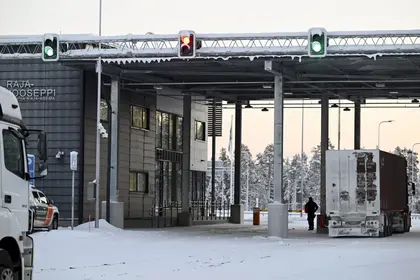Finland will reopen two crossings on its border with Russia, its prime minister said Tuesday, after Helsinki in November shut its frontier, accusing Moscow of orchestrating a surge in migrants.
“The government has today decided to keep the eastern border closed except for two border crossing points,” Prime Minister Petteri Orpo said.
JOIN US ON TELEGRAM
Follow our coverage of the war on the @Kyivpost_official.
Helsinki will open the southeastern border crossing points of Vaalimaa and Niirala on Thursday.
Orpo said that the restrictions have been eased in order to assess whether “there is a change for the better.”
“If the phenomenon continues, we will close these border crossings,” he added.
Following an influx of migrants in mid-November, Finland closed four of its eight border crossings with Russia, before restricting passage only to the northernmost crossing. That too was closed by the end of November.
The Nordic country, which shares a 1,340-kilometre (830-mile) border with Russia, had seen nearly 1,000 migrants arrive without a visa through its eastern border crossings since August.
“This is an organised activity, not a genuine emergency,” Orpo said of the surge.
Russian Foreign Ministry spokeswoman Maria Zakharova denied at the time that Russia was acting deliberately.
Finnish authorities maintain that the surge in migrant numbers may continue.
“It is possible that Russia will continue its operation,” the prime minister said.

Putin and Xi Praise Ties, Hours After Trump Sworn In
The European Union’s border protection agency Frontex deployed some 50 guards to watch Finland’s border with Russia in December.
Finland’s relations with its eastern neighbour soured after the invasion of Ukraine.
Moscow warned of “countermeasures” after Finland joined NATO in April, reversing its decades-long policy of military non-alignment.
You can also highlight the text and press Ctrl + Enter










